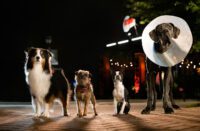Today nearly everyone carries a camera on them at every waking moment, but a generation ago—before the omnipresent smartphone—Reed Harkness was one of those few boys who always carried a camera and was always making films. A camera might be a beacon of light illuminating darkness, a storytelling device, or a shield from the starkness of reality, but for Reed it was also his means of understanding the world around him. He filmed his little brother Sam, eight years younger, in various superhero and swashbuckling heroics, and imagined he might film a chronicle of Sam’s boyhood over the years (à la Michael Apted’s 7Up series): Sam at 10, Sam at 17, and eventually, Sam Now.
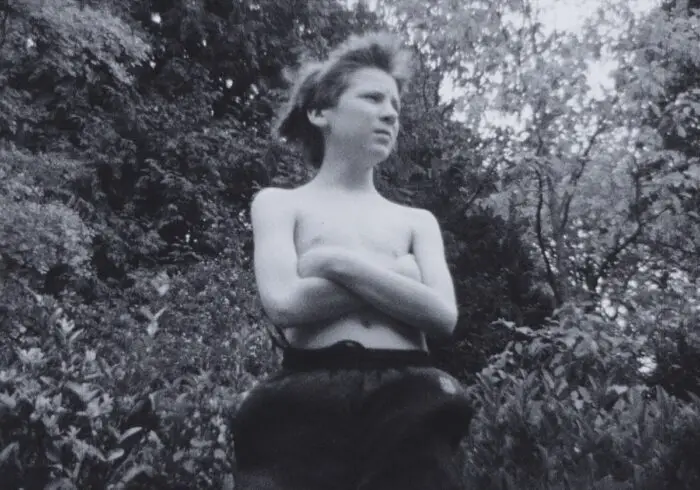
In a way, that’s exactly what Reed did with his documentary Sam Now, except that his filmmaking took a turn when the two brothers make a fateful decision to solve a family mystery. The two boys are born to different mothers, raised by the same father, Randy, following his divorce from Reed’s mother. Then one day Sam’s mother Jois disappeared without word. Their family is curiously reticent about the episode, but brothers Sam and Reed, armed with little more than a camera and their curiosity, embark on a quest that takes them over 2,000 miles and into generations of familial trauma. Deciding to pursue the truth—a simple attempt to try to find Sam’s mom—reveals more than either of them could have imagined.
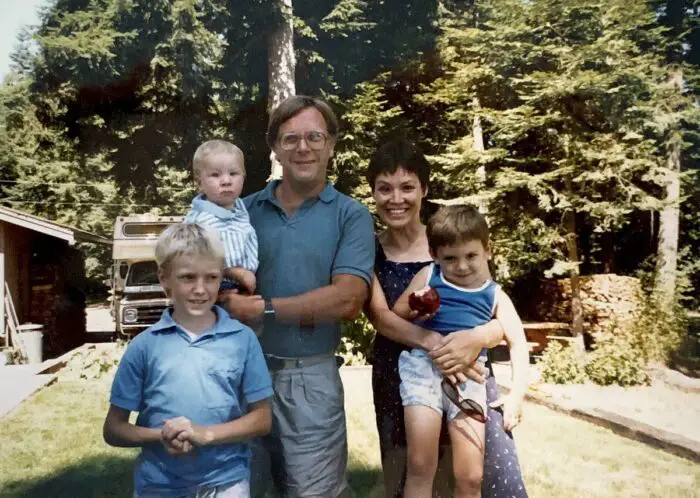
When the two were young, they used to make Super-8 movies starring Sam as a superhero-in-a-wetsuit, the Blue Panther, bounding about to fight crime and solve mysteries. This old footage gets resuscitated and re-energized for Sam Now, providing a framing device that lends the film a great deal of its energy and charm. Set to the punk-grunge garage rock of The Sonics, Porcelain Raft, and others and interspersed with the comically lo-fi episodes of Sam as the mask-wearing alter-ego, the quest takes the two boys deep into the mystery of their mother’s disappearance.
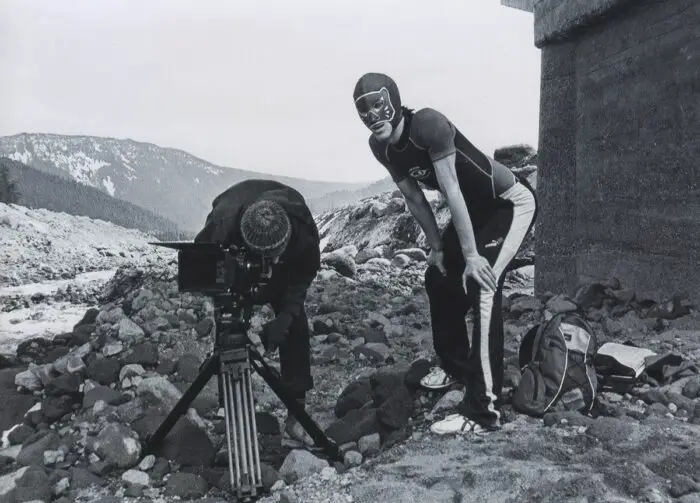
Sam Now leaps into that quest with all the energy of a youthful Blue Panther. Its editing is brisk, the cinematography both candid and creative, the protagonists Reed and Sam full of fun. Cheeky and irreverent, some of these scenes are shot in silly reenactments, with a toy bus careening about on a print road map for transitions. But for all the creative vitality the two bring to their mission, what they find is sobering. Without divulging much in the way of spoilers, their tracing of Jois’ mysterious disappearance not only uncovers trauma that impacted her life but their own. And the simple desire of a young boy to find, to connect with, his mother is powerful indeed.
In that respect and some others, Sam Now reminds me more than a little of another lo-fi documentary, the famously no-budget Tarnation, in which Johnathan Caouette used his own archive of video footage to examine and investigate his mother’s failed mental health. That film, made at first for $200 on an early iteration of iMovie, suggested new directions for independent personal documentary filmmaking, merging the poetic with the expressive in its elaborate, effective montage. Like Tarnation, Sam Now too is made up in part of old footage, takes on an investigative quest into the past, and hopes against hope to connect a son with his mother. Nothing in Sam Now approaches the characterizations of mental illness present in Tarnation, but Sam Now does not shy away at all from the trauma Sam’s mother both experienced and inflicted.
As the years progress, Sam, like Reed, grows from an adolescent teen to a young adult and eventually a mature, if still conflicted, man in his thirties. The trauma of his mother’s disappearance, even though largely resolved by their investigation, continues. It gets passed on, generation to generation, at times disappearing under the surface, but remains always present. The question becomes how best to address it, to confront it, to heal from it?
For Reed, the older brother with the camera, the answer is in filmmaking, and the result is Sam Now. This documentary, filmed over 25 years with every video technology available over that time, from Super 8 to Arri 4K, draws from a vast archive of the brothers’ fictional films, home videos, intimate family interviews, and cinema-vérité scenes from past to present. Comic reenactments butt up against sobering revelations. The project’s findings ripple out to impact each member of the family: Sam’s brother Jared, father Randy, and grandma Doris—whose sage perspective offers up a wisdom at the film’s conclusion we would all be smart to heed.
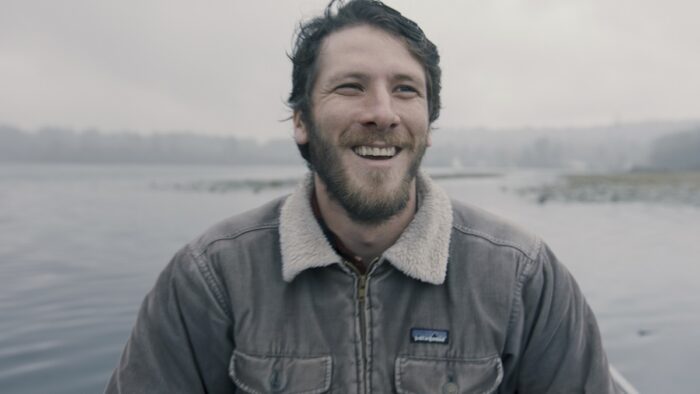
From age 11 to 36, Sam comes of age. The film charts a growth that is the result of an awkward struggle, a consequence of an emotional reckoning for which no young boy can be prepared. As such, it’s a film that demonstrates just how impactful and commonplace such Adverse Childhood Experiences (ACEs) have become: recent CDC data suggests that one in three Americans have at least one major such experience and one in five people have more than three. Cumulatively, those experiences dramatically impact the prospects for lifelong health and opportunity. With its beautiful tapestry of old and new, love and loss, the serious and the comic, fact and fiction, Sam Now does everything it can to overcome intergenerational trauma.
Sam Now is available for educational and community screenings from Good Docs and available for rent or purchase from major Video on Demand services such as Prime Video, Google Play, AppleTV+, and Vudu.


